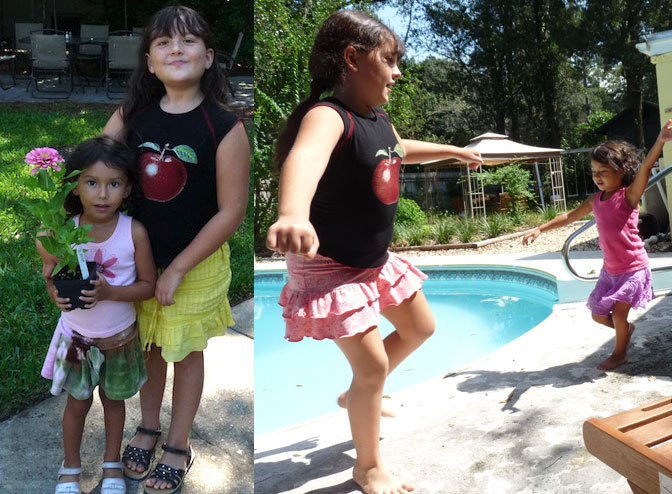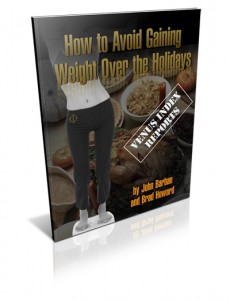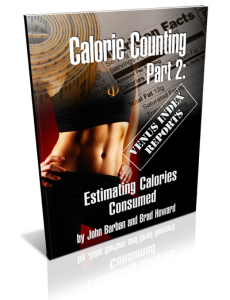This is the conclusion of a blog post from last week. If you haven’t already read Part 1, please catch up here: Transformation is a Family Affair!
For those of you who have Venus Index Community access, there are quite a few comments being shared about Part 1 as well as some blog posts where members delve into their relationship with their mother while growing up as it pertains to the topics of body image, self-esteem, and transformation.
Here Are Some Highlights of the Ongoing Discussion:
- We face new challenges in this modern age, some of which our own experience did not prepare us for.
- The media plays a key role in developing body image, especially teen, fitness and fashion magazines.
- Many kids use food to self soothe and/or eat mindlessly.
- Anything can set a child off on a possible path to disordered eating. It might just be a passing comment. This is more true for girls but applies to boys as well.
- Addressing a child’s body weight issue is a difficult conversation which some parents are unwilling or unable to take on, even if the child repeatedly asked for help.
- Some difficult topics can be made less uncomfortable by doing things such as discussing while driving or doing the dishes.
- Beginning these conversations is important so underlying issues can be allowed to surface. It is a process.
- While we know there is a genetic ideal for adults, we are not so clear on what the truth of the matter is for children. How do we even know for sure if our child has an issue that needs to be addressed?
- Simply telling a child that they are fat or eat too much is not helpful. Adults barely understand how to work through the process of reducing body fat in a safe manner. A child needs patient guidance and ongoing support given in a loving and non-critical manner.
- Women who grew up during the 1970s and before remember a time when it was “normal” to constantly “diet”. Perhaps some of the methods were not ideal but there is a lesson in there; we were indeed thinner. If periodically dieting is what it takes to maintain that for some of us, what could possibly be wrong with that? Ideally, learning to minimize periods of weight gain is the ultimate goal but until that is mastered, getting back on course through a mini-diet as soon as required is a healthy approach to maintaining an ideal weight.
- With the bulk of adults now overweight or obese, guiding our children has become quite the challenge. How can we teach what we do not ourselves know?
- Some of us come through childhood with the disadvantage of having been led astray by parents who just didn’t have emotional maturity about their own self-image and, intentionally or not, did emotional damage to their kids. Be kind to yourself if you find you need to overcome and heal childhood wounds. That may be a lifelong process but it does not mean you need to repeat the same mistakes that were made. Also, as above, simply communicating with your children even about your mistakes goes a long way.
- Be careful using food as a manipulator/drug/healer/reward! Yes, we do sometimes all need to sit down to a big old tub of ice cream or plate of cookies or know we’re loved because we got lasagna on our birthday, but just think carefully when you are dealing with a developing child who is developing associations.
- When judging your parents, know that they had their own issues with their parents. Know too that you won’t possibly do everything perfectly. Forgiveness and compassion go a long way, especially towards yourself!
- Children do not get the same portion size as adults! (This was a big eye-opener for me!)
- Other cultures do still nip the problem in the bud by having children diet, something that has come to be considered dangerous in North America.
Last week, I was discussing how my older daughter came to my husband and me asking for help getting leaner. She had begun to perceive herself as fat. At the same time, my younger daughter who has always been very lean has some issues we need to guide her through including being willing to try more foods, eat a balanced diet, and eat enough around activities such as socializing and gymnastics.
My husband and I have stayed up into the wee hours discussing how to preserve and nurture our older daughter’s delicate self-esteem while empowering her to gently shift her ways of eating and moving her body towards a life-long habit of both physical and emotional health.
We have been forthcoming with her about the methods we used to achieve our results and also open about our ignorance of what she as a child should safely do.
Lifting weights?
Perhaps not yet.
Caloric restriction?
Perhaps minimal.
The goal has never been a 12 week transformation. The most important goal has always been education and safe, gradual improvement both internally and externally. Physical and emotional health are what parents want for their children.
But is it taboo to say we’d be happy to help take it further if and when she is interested?
The bottom line is we are in charge of her health and she is in charge of her body.
The VI and AI ratios have helped us to finally understand not only what look is most attractive, it’s also the genetic ideal. In other words, if the body is used and treated ideally, this is the shape it takes on.
So part of our education process can be helping her understand what she is capable of and helping her understand why she is still unsatisfied with what she has achieved to date. Just as I am teaching my daughters how to work with their hair (curly hair has a steep learning curve) and how to put together flattering outfits, I am also there to help them understand how to achieve their most flattering figure.
The difference here is she leads, we follow. Because she is now feeling very proud of the progress she has made in the last few years, we are careful not to jeopardize her developing self-confidence. If and when she wants to take it further, we are there to help explain the concepts.
One day last week was very hectic so a pizza on the run was the plan for dinner. My older daughter said to her dad, “Hey, we’d better eat a very light breakfast and lunch since we’re having pizza later.” How cool that she has begun to responsibility for how much she eats while still checking in and continuing to learn.
You Are Both the Parent and the Coach
When did it become taboo to tell a child not to eat right before dinner, that vegetables are as critical to health as is sufficient protein or that perhaps cheese is not the best snack but rather something that should be enjoyed in limited quantities?
Without controlling what she chooses to eat, we have regular discussions about nutrition and let her make her own choices.

My gorgeous tween daughter today
Over time, her choices constantly improve.
The flip-side of this is we don’t force our girls to choke down meals we decided they should eat. Everyone has their own tastes and we honor this and play to their strengths without capitulating to a junk food diet.
If it’s not in the house, it’s not going to be eaten all the time.
If they want an occasional treat, we’re usually up for going out and getting it.
The thing is, now that we’re not bringing multiple pints of ice cream and take out pizzas into the house so often, they gradually stopped asking so much. We did at first explain that we needed to have less of these things as we were cutting down.
Now that we have let these foods back into our life on a more regular basis, we are all more in control. Friday night tends to be treat night around here and that feels fun.
You Must Parent Each Child Uniquely
Although I attempt to get my younger daughter to try new things, I understand that it is not always possible for her to eat food items that she finds abhorrent. I still remember simply not being able to choke down most of what was served to me during my childhood. The difference is I was expected to eat what I was served and was made to feel wrong for not liking it. While it’s easy sometimes to understand this pattern of thinking, especially when the meal really is quite delicious, I have to respect her tastes.
I have invested significant time and effort into trying to get her to be honest about her current likes and dislikes and we talk about being willing to taste new things more than once to be sure that she truly doesn’t care for the item right now.
We also talk about not dismissing a plate based upon looks.
I do strive to add visual appeal for her sake, something I’d never bothered with before. And I don’t hop up and fix a whole new meal.
She knows that if she rejects what I’m serving, I’m going to sit and enjoy the meal I’ve lovingly prepared and she can either wait or fix herself a healthy snack.
We also don’t try to control her small appetite which used to cause us such concern.
We have grown to love that she knows when to stop eating.
Sort of…
She will actually eat far more than her share of treats! Luckily, access to unlimited treats is pretty rare.
We do not ever demand she finish what I arbitrarily portioned onto her plate. We also sometimes need to make certain she actually does eat, like before gymnastics which she does 3 days a week for 3 hours at a time. And we have to jump through a few hoops to get her to eat enough protein.
Her tastes are a moving target and while I do not want to coddle her, I also don’t want to have a resentful atmosphere. Also, I trust that as she matures, so will her tastes.
We notice her attitude and strength are affected when she goes without food for too long.
So for the sake of our sanity, sometimes we simply must insist she eat!
We try to keep that to a minimum and we always explain the circumstances.
On her rest days, she can do without food for hours.
It’s all good.
How refreshing to have let this battle of wills go!
What issues are you dealing with?
Because I have not been free to discuss this taboo subject openly, finding my way has been an iterative process of learning about how healthy adult human bodies work, mostly from the Venus Index Uncensored Podcasts, and then relying heavily on intuition when applying these teachings to my children.
Does anything in this resonate with you?
Or irk you?
Let’s hear it!






New Comments